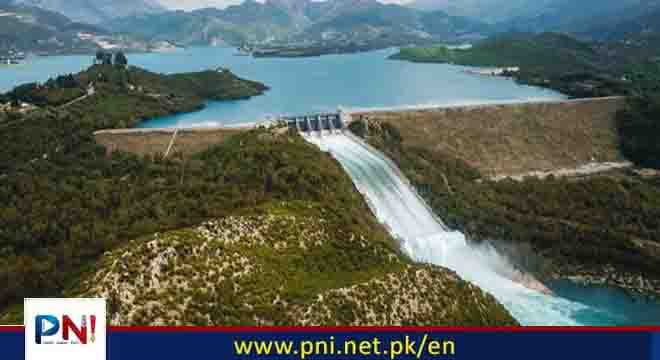ISLAMABAD, Aug 30 : As the federal capital’s population continues to grow unhindered, the city’s natural resources are under extreme pressure with water availability becoming the top most challenge for the authorities.
Although Capital Development Authority (CDA) – the top civic amenities provider to the capital residents – is making every possible effort to overcome the shortfall in water availability through numerous measures, the situation demands a holistic approach for a long-term solution.
Since Islamabad’s population grew more than double during last 20 years or so, the pressure on already available resources like Simly, Rawal and Khanpur dams has increased manifold. Then the development of more and more housing societies to meet the residential demands of people shifting to capital from other cities has made the situation further challenging. Depleting underground water resources and climate change is another looming challenge.
“Although the situation is challenging, yet the Capital Development Authority (CDA) has initiated several measures to address the shortfall,” stated Sardar Khan Zimri, Director General of Water Management at the CDA.
“With the population growth and emergence of new settlements, increase in water demand is natural and the Authority is fully cognizant of its duties,” he said. “Therefore, we are looking for more options and proposed construction of two new dams, Shahdra and Chiniot Dam, to augment existing water supply.”
To improve efficiency of water system, Zimri said, the CDA plans to modernize water distribution network and sewage treatment plants. “These upgrades aim to reduce water losses and enhance overall effectiveness of water management system.”
Zimri said the CDA Board has approved pre-feasibility studies for Shahdra and Chaniot Dam to speed up the planning process and has requested WAPDA to conduct pre-feasibility study for Dotara Dam, a site located 41 km upstream of Khanpur Dam. “If the civic agency succeeds in laying gravity tunnel from Dotara Dam via Shahdara, it would be able to generate around 10 to 13 megawatt electricity as well.”
He also mentioned to a project for enhancing water storage capacity of Khanpur Dam, controlling seepage, unfair use of water and its theft through open channels resulting in loss of 40 to 50 per cent water share for the Capital.
“The CDA has requested WAPDA to conduct pre-feasibility and once federal capital gets its due water share, the CDA would be able to supply water to at least 10 more sectors,” Zimri said. “We have also decided to resume work on non-completed water conduction pipeline from Shah Allah Ditta reservoir to Sector I-11, I-12, I-14, I-15, I-16 etc. Tenders have been called for three missing portions from Shah Allah Ditta to Sector G-13 with starting work on one portion. Moreover, the CDA Board’s has also approved amendments in building by-laws for rooftop rainwater harvesting.”
Additionally, the CDA, he said has installed 94 filtration plants across Islamabad to ensure clean drinking water for residents as per the WHO standards. “The quality of water supplied through these plants is regularly monitored by the CDA Lab and cross-checked by organizations like PCRWR, NIH, and Pak-EPA.”
Zimri informed that CDA is also undertaking significant long-term projects to secure more reliable water supply and “one such project is the ‘Conduction of Water from Indus River System at Tarbela Dam for Islamabad and Rawalpindi. This project aims to develop a perennial source of potable water to meet both current and future demands for twin cities.”
The growing population has rose water demand to around 120 million gallons per day (MGD) and if this trend continues the demand would further increase exerting extra pressure on available water resource.
Similarly, the groundwater table that was around 10 meters deep in 1960s has now gone down to 60 to 120 meters. Moreover, climate change is also impacting water availability with altering precipitation patterns as Islamabad experiences an average annual rainfall of about 1300 mm that is insufficient to counterbalance the high demand.
Meanwhile, the residents have urged to frame a comprehensive strategy for once and for all settling this issue as rising population may lead to difficult times ahead. “We need timely measures to ensure that our future generations live in a better environment with all required basic facilities available for them,” said a concerned mother Maria.
Ahmed, another resident emphasized that keeping in view urgency of the matter, the government should take immediate action to address the water issues.Fatima, a business woman also commented that she has been living in Islamabad for last 20 years but seeing the situation in recent years, I feel that it is high time for urgent measures.
Their concern is justified but if we look into this issue in broader perspective, water provision and conservation is a shared responsibility of both the civic agencies as well as the residents.
The CDA’s ongoing projects and proposed solutions are definitely the steps in right direction, but there is also dire need that residents to avoid water wastage and use this resource responsibly.
As there is no mechanism to curtail or control population, it would become imperative for civic agencies and the residents to devise a parallel mechanism for uninterrupted provision of civic amenities to them.
Follow the PNI Facebook page for the latest news and updates.









